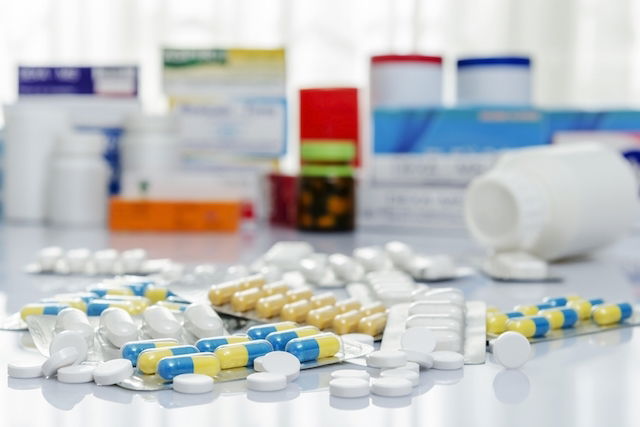Gonorrhea treatment involves the use of antibiotics like azithromycin or ceftriaxone to eliminate the bacteria that causes this infection. It is important to complete treatment exactly as prescribed to ensure bacterial resistance.
Treatment for gonorrhea should be completed by both sexual partners, and sex should be avoided during treatment and held off until treatment is complete. The reason is because gonorrhea is usually asymptomatic, and even though symptoms can improve or disappear, it does not meant the bacteria was completely eliminated.
Gonorrhea is a sexually transmitted disease that is transmitted from person to person through unprotected sex. Common symptoms include white-yellow discharge and pain or burning in the throat (if transmitted through oral sex).

Medications for gonorrhea
The medications that are prescribed for gonorrhea treatment include:
- Azithromycin
- Ceftriaxone
- Ciprofloxacin
These medications should be taken as prescribed. In very serious cases, the bacteria can enter the bloodstream and cause sepsis, which requires hospital admission for IV antibiotics.
During treatment, it is important to avoid sex until you are completely cured. To ensure the treatment was effective, you should perform another lab test to ensure the bacteria was eliminated.
It is also important for your sexual partner to be treated, even if they do not present with symptoms. Because this STI is transmitted through sex, there is a risk for reinfection among the couple and/or transmission to others if both partners are not treated.
How to treat antibiotic-resistant gonorrhea
Gonorrhea that is resistant to antibiotics, also known as super gonorrhea, is normally done with a combination of antibiotics. Treatment duration is also longer.
Home remedies
Home remedies for gonorrhea should be used to complement medical treatment. Gonorrhea can be treated with echinacea tea as this plant contains antibiotic and immunostimulating properties. It can help to eliminate the bacteria and strengthen the immune system.
To make this tea, add 2 teaspoons of echinacea flower or roots to 500 ml of boiling water, allow to steep for 15 minutes, then strain and drink twice a day.
Signs of improvement and worsening
Signs that the gonorrhea infection are improving include reduced pain and burning with urination, the disappearance of the discharge, and decreased throat pain for oral infections. Even if these symptoms seem to be getting better, continue to follow treatment as prescribed by your doctor.
Signs of worsening will emerge when treatment is not started early, or if treatment is not completed as prescribed. Signs include increased pain or burning with urination, more discharge, fever, testicular pain and swelling in men, and joint pain.
Possible complications
Gonorrhea complications occur when treatment is not fully completed, and may include uterine infection, fallopian tube infection, and abdominal cavity infection in women, or epididymis infections in men. The gonorrhea bacteria can spread through the blood stream and infect other areas of the body, like the joints.






























